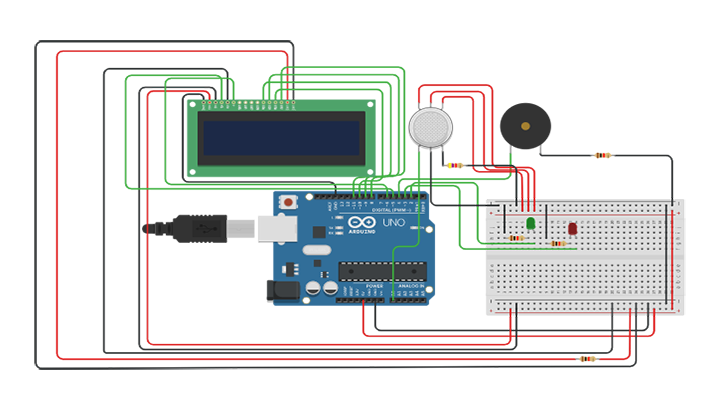IoT based remote monitoring of water quality in tanks - Case of WASAC
In this project, we design an affordable system architecture for utilizing Internet of Things (IOT) technology, which delivers the required results in real time, to remotely monitor the quality of water in tanks of WASAC. For the purpose of putting this research into practice, a prototype was created using both a software and hardware component. The implementation of this project will significantly increase the contribution made to WASAC (Water and Sanitation Corporation), a firm within the Rwandan government (GoR). Although WASAC includes multiple departments, this initiative is only relevant to the side of the department that monitors water quality. The system is designed so that the technician can automatically receive an email notification about the water quality without physically visiting the location.
Related project idea for free
IoT-based Air Quality Monitoring System in Public Transport
Public transportation is primarily used by the vast majority of people in low- and middle-income countries for daily activities. Public buses, for instance, are the primary mode of transportation in Kigali (Rwanda), as they are more cost-effective than alternative options including private cars, mot...
Read more>>Smart school bus monitoring and notification system using RFID, GPS and ESP8266 NodeMCU
While employing technology in the classroom and school administration is the idea behind smart education, there are other aspects of education that also need to be automated. One such aspect is comforting parents while sending their children to school. One major issue in the City of Kigali is the la...
Read more>>Smart car Parking System in Kigali - Rwanda
This dissertation examines an IoT-based smart car parking system used in Rwanda. Rwanda is a nation that has to be intelligent in a variety of areas, including agriculture, health, and transportation, particularly in terms of parking. People are affected by a variety of parking issues, including tim...
Read more>>Accident Detection Based On IoT
Road accidents frequently result in damage, injuries, or fatalities and happen unexpectedly and without warning. Through the elimination of the time lag between the accident's incidence and the initial medical emergency, this research aims to lower the fatality rates following an accident. A mac...
Read more>>IoT based toxic gas detection and level of landfill - Case study: NDUBA LANDFILL
As the world's population expands, so does the amount of waste. Most landfills release harmful pollutants into the air and into the homes of those who live nearby. Effective landfill management is necessary to protect both the environment and human health and wellbeing. The findings of the litera...
Read more>>
